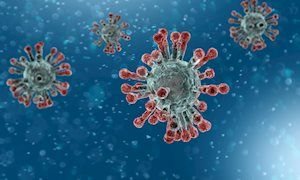26 February 2020
Annually over 85.000 patients are admitted to Dutch ICUs. Even though the number of ICU-survivors has been steadily increasing over the past decades, little is known about their long-term health. ICU survivors can suffer from prolonged physical, mental and cognitive health problems, and even for ICU survivors that do not experience these issues, (complete) recovery can take an unexpectedly long time.
To provide ICU doctors, ICU nurses, and patients and families with more insight in the long-term health outcomes of an ICU admission, a statistical model has been developed to predict quality of life one year after ICU admission. Because after all, it is not just about survival, but about surviving with a good quality of life.
To do this, data from the MONITOR-IC study was used (www.monitor-ic.nl): a prospective cohort study that collects a host of patient reported outcomes of thousands of adult ICU patients. Follow-up lasts up to five years after admission.
Under supervision of Dr Marieke Zegers, Dr Mark van den Boogaard and Professor Hans van der Hoeven, Nina Wubben, MSc developed a prediction model for change in quality of life one year after ICU-admission. Important predictors were, among others, quality of life and the level of frailty before admission. The small number of predictors make the model practically useable.
In the coming months, the use of the prediction model will be tested in existing conversations between ICU doctors and patients and their families. Here, the added value of using long-term health information in ICU practice will be assessed, as well as whether such information can help with speaking about life after an ICU admission.
This project is financed by the National Health Care Institute (ZIN).

Annually over 85.000 patients are admitted to Dutch ICUs. Even though the number of ICU-survivors has been steadily increasing over the past decades, little is known about their long-term health. ICU survivors can suffer from prolonged physical, mental and cognitive health problems, and even for ICU survivors that do not experience these issues, (complete) recovery can take an unexpectedly long time.
To provide ICU doctors, ICU nurses, and patients and families with more insight in the long-term health outcomes of an ICU admission, a statistical model has been developed to predict quality of life one year after ICU admission. Because after all, it is not just about survival, but about surviving with a good quality of life.
To do this, data from the MONITOR-IC study was used (www.monitor-ic.nl): a prospective cohort study that collects a host of patient reported outcomes of thousands of adult ICU patients. Follow-up lasts up to five years after admission.
Under supervision of Dr Marieke Zegers, Dr Mark van den Boogaard and Professor Hans van der Hoeven, Nina Wubben, MSc developed a prediction model for change in quality of life one year after ICU-admission. Important predictors were, among others, quality of life and the level of frailty before admission. The small number of predictors make the model practically useable.
In the coming months, the use of the prediction model will be tested in existing conversations between ICU doctors and patients and their families. Here, the added value of using long-term health information in ICU practice will be assessed, as well as whether such information can help with speaking about life after an ICU admission.
This project is financed by the National Health Care Institute (ZIN).
Related news items

More than five million euros for research to improve palliative care Jeroen Hasselaar will lead research project with Horizon grant
15 June 2022 Jeroen Hasselaar will lead a large international research project. With a 5.3 million euro grant from the EU's Horizon program, he and his team want to improve palliative care for cancer patients, together with partners from nine European countries. go to page
Most COVID-19 ICU survivors experience symptoms one year after ICU admission Publication in JAMA
25 January 2022 75% of the COVID-19 survivors who were treated in the Intensive Care Unit (ICU) experience physical, mental and/or cognitive problems one-year post ICU. This shows the large-scale MONITOR-IC study led by Radboudumc. go to page
Promising aftercare for vulnerable patients in ICU
30 March 2021 ICU researchers Mark van den Boogaard and Marieke Zegers will receive a ZonMw/ZIN grant of 1.6 million euros for their research into cost-effectiveness of multidisciplinary, structured and personalized post-ICU care. go to page
New Physical, Mental, and Cognitive Problems 1-year Post-ICU
18 February 2021Half of the Intensive Care Unit (ICU) survivors suffer from new physical, mental and/or cognitive problems one year after ICU admission. This is evident from the large-scale MONITOR-IC study led by the Radboudumc.
go to page
